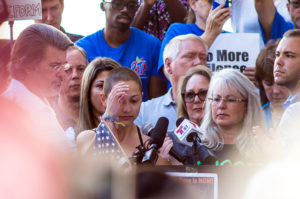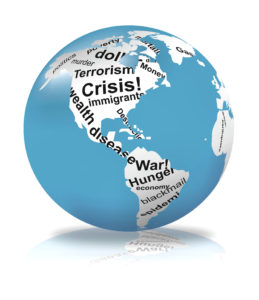Failure is ALWAYS an Option
 When I wrote this article back in 2014, it was published in three places. But it’s long enough ago that I can’t find it online. The message is too important to let slip away, so I’m reprinting it here–unchanged except for adding one sentence.
When I wrote this article back in 2014, it was published in three places. But it’s long enough ago that I can’t find it online. The message is too important to let slip away, so I’m reprinting it here–unchanged except for adding one sentence.
–Shel Horowitz
I laugh whenever I hear that famous phrase, “failure is not an option.” It shows not only enormous ignorance of the real world and the human brain, but also enormous hubris.Let’s get real. Failure is always an option—with sufficient bad luck or timing, loss of motivation, key player defections, or inadequate funding. This doesn’t mean the task is impossible; it’s just that currently, for whatever reason, it doesn’t seem worth marshaling the necessary resources to finish the task. And when the stakes are high (brain surgery or piloting a fully loaded commercial jet, for example), failure is a terrible option with horrible consequences—but even that doesn’t guarantee success.
Sometimes, we can minimize the impact of choosing failure. Almost always, we can embrace it as a learning opportunity.
The trick is to fail cheaply and early—and maybe often, make your mistakes, and move on. See what can be salvaged, what can be reinvented, and what should be thrown in the trash. Thomas Edison took 10,000 steps to invent the light bulb. Most people would say he failed 9999 times. He saw it not as a failure but as a 10,000-step process. In other words, our failures teach us enough to achieve our successes.
I’ve had my share of failures. This spring, for example, I set up a telesummit involving 17 speakers, plus eight bonus calls from my archives for those who purchased the recording package. I spent some money and a considerable amount of time.
And it failed.
The business model is proven. I just got a mailing from the organizer of another telesummit, and she reported 2500 signups and a 5% conversion to the paid recording package. If I’d had those numbers, I would have made a profit even after paying 50% commissions to the speakers who brought in those buyers. But I was not able to motivate people to visit, sign up, and buy.
What did she do differently? First, she had a much broader-based subject appeal. There are a lot more people who want to succeed as book authors than in running a green business. Second, she had more speakers. And third, she motivated all her participants with leaderboards and contests and a general sense that things were really moving and we all would want to get on the bandwagon.
While I was expecting a revenue stream instead of a cost center, I learned enormously from this failure. Among other things, I learned not to count on your speakers promoting your event in a meaningful way. Some of the largest list owners never mailed, and thus my traffic was far lower than expected. Low enough that the sales were basically invisible.
Here are some of my other takeaways:
1. Learn when to work with off-the-shelf products and when to go custom. I could have done 90 percent of what I wanted to with an off-the-shelf software package called Instant Teleseminar. But their model involves paying every month, forever—so instead, I just hired someone to build the functionality I was looking for. That decision led to some serious cost overruns, and I still didn’t achieve all the functionality I wanted. If the summit had succeeded and I did a new one every six or 12 months, developing the in-house solution still would have been the right decision, because it would probably pay for itself around the fourth summit. But since I doubt I’ll organize another series like this one—though I might very well reuse the content I created and rerun the series at some point—I should have just bought the product.
2. Keep it simple! The website is beautiful, but it’s too hard to use. I think it scared people off. I should have really improved the usability before I let it go live.
3. Identify an audience of buyers. The woman who achieved that big telesummit success could draw from tens of millions of people who want to be successful published authors. While there are hundreds of thousands who want to run successful green businesses, maybe that isn’t a critical mass, especially since I didn’t have a direct channel to reach them.
4. Keep the content focused. I think my series split its energy between being about marketing, generally, and being about green business success. This may not have been wise. Maybe I needed to push more of the marketing experts to speak specifically about applying their techniques in the green world.






